Gas equipment has always been considered one of the most dangerous from the point of view of operation. At the same time, the use of gas in everyday life has become an integral part of housekeeping. Starting from cooking in small kitchens of Khrushchev buildings and ending with heating huge country houses.
Unfortunately, most of the tragedies that have occurred in recent years are associated with gas leaks. That is why the issue of installing a gas leakage sensor has received such a resonant meaning, because previously the legislator did not oblige the obligatory installation of this device in the communication of the gas system.
In this article, we will figure out what a gas leakage sensor is, why and where it is needed. We will also consider the laws relevant for 2019 regarding the installation of sensors, find out whether it is necessary to install a gas leak sensor and analyze the advice of experts in this area.
The content of the article:
-
What is a Gas Leak Sensor?
- Device and principle of operation of the device
- The main functions of the gas leak sensor
- Who and why requires the installation of sensors?
- Mandatory installation of leak sensors
- Expert advice on selection
- Conclusions and useful video on the topic
What is a Gas Leak Sensor?
If detect gas leak most often it succeeds only by a specific smell, which often happens too often, then the gas leak detector allows you to do this much earlier. It is designed to detect household gas particles in the room air that exceed the permissible percentage (percentage).
Having determined the increase in gas concentration, the device informs the person about it with a sound signal. Also, modern sensors are equipped with the ability to additionally report this information to the gas service, which allows you to act quickly in situations when the owner of the apartment is not at home.
The design of the gas sensor includes a sensitive element that is triggered at the slightest deviation from the standard values of the air composition.
It is important to remember that in practice, users often encounter cases of erroneous operation of a gas leakage sensor. But do not neglect this signal and turn off the device in the future. In matters relating to gas equipment, it is better to play it safe once again and check if everything is working properly.
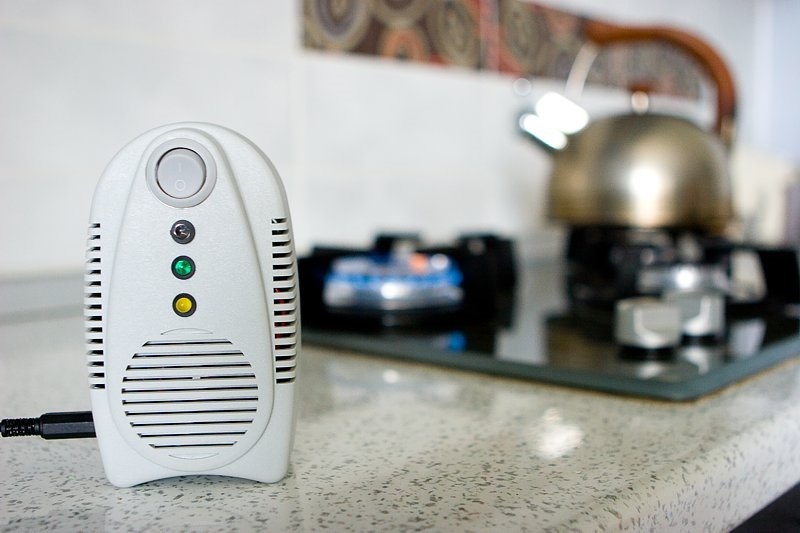
The leak sensor itself is a small device. It can be made in accordance with a certain style and in different colors. The place of its installation is regulated by the requirements of the instructions
With regard to dimensions and installation, household gas analyzers are quite compact and can be placed anywhere.
Device and principle of operation of the device
Depending on the groups of gases to be detected, the device design provides for various types of sensors: optical, electromechanical, thermomechanical and others.
The main components in the sensor design:
- primary converterl, which determines the value of the gas concentration in the surrounding space;
- measurement module, which compares the data received from the primary converter with the permissible rate of gas in space;
- actuating mechanism, which automatically closes the gas supply from the system;
- power supply, which ensures continuous operation of the sensor - usually a battery or a power supply unit.
All structural elements are assembled in a compact body.
When the gas concentration exceeds the permissible value, the sensing element of the primary converter, which measures the composition of the ambient air, changes its characteristics. This change becomes a signal for the measuring module, which, in the event of a deviation from the set values, sends light / sound signal, as well as a command to shut off the gas (if it is a sensor with a shut-off valve), turns on the emergency alarm.
The main functions of the gas leak sensor
Next, let's talk about whether, in principle, a gas leakage sensor is needed for domestic use.
So, based on the principle of operation, the gas leakage sensor performs the following functions:
- accident notification;
- automatic shut-off of the gas supply using electromagnetic shut-off valves;
- activation of ventilation, which provides air extraction.
This is just an operation. Further actions to eliminate the leak must be performed by the gas service specialists. It turns out that such a sensor is very useful in everyday life.
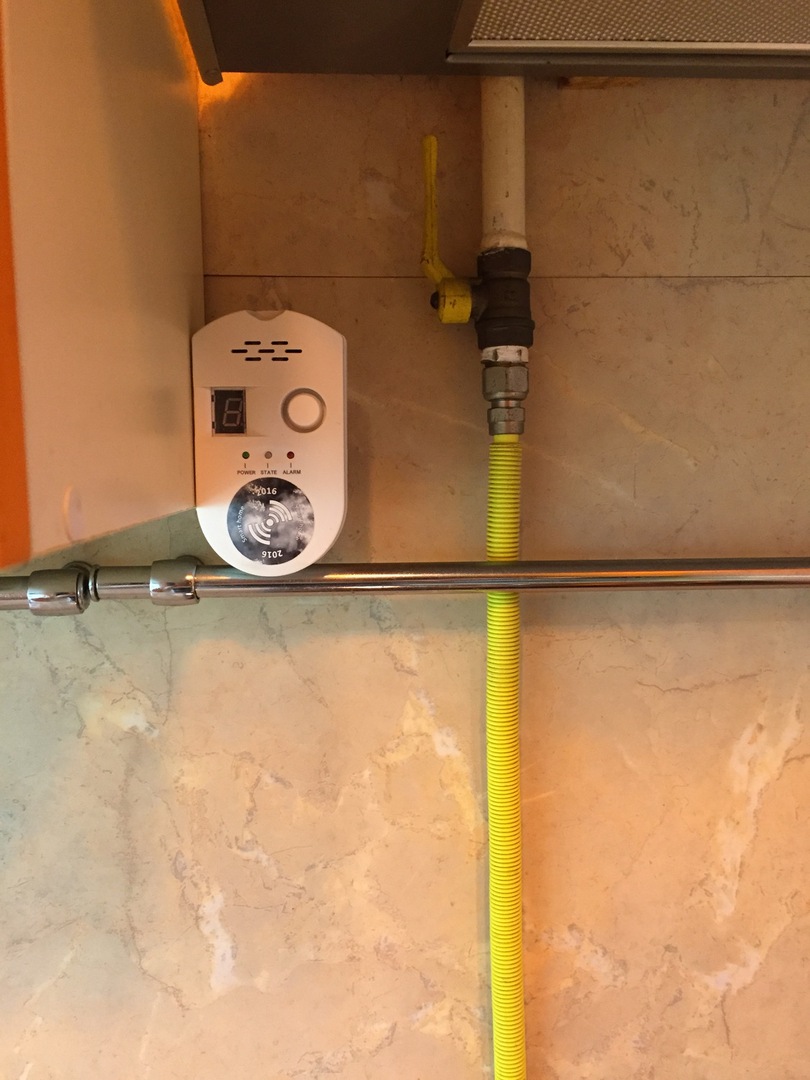
Installing the sensor is not a substitute for monitoring the normal operation of the gas equipment. Even if there is a sensor, it is necessary to periodically check the gas communications and the correct operation of the connected devices.
Who and why requires the installation of sensors?
First of all, the installation of gas leakage sensors is necessary in order to reduce the amount explosions, fires and other accidents. And, naturally, to reduce the number of victims.
It is for this reason that the mandatory installation of these control devices was introduced to the State Duma for consideration at the beginning of this year. Justifying the presence of modern technologies in this area, the authors of the bill require the development and widespread use of gas control system, which will automatically notify and shut off the gas supply in the event of emergency situations.
The bill was supposed to amend Articles Housing Code.
By the way, the solution to the problem of installing such systems should be provided at the expense of the capital repair fund, the scope of which includes:
- repair of elevators;
- basement and roof repair;
- repair and maintenance of normal functioning of in-house engineering systems.
The developers of the bill suggest that the sensors should be installed in basements with gas boilers and in kitchens.
As a result, the Housing Code did not change, but special Rules were developed and approved to regulate the procedure for designing gas consumption systems in residential buildings. These rules are abbreviated as SP 402.1325800.2018 and came into force in June 2019.
In accordance with chapter eight of the rules, security must be carried out in accordance with the requirements specified in SP 4.13130.2013 and SP 7.13130.2013.
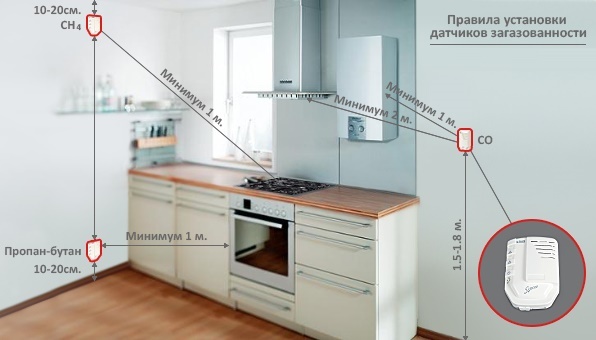
Installing a gas leakage sensor is a forced measure, which should subsequently prevent the possibility of tragic consequences from accidents
In the same section, cases of mandatory installation of gas sensors are indicated:
- in blocked houses;
- regardless of the place of installation with a gas equipment power of more than 50 kW;
- in boiler rooms, which are located on the ground floors and in basements;
- in apartment buildings;
- in boiler rooms that are located in apartment buildings and are intended for built-in or attached public premises;
- when placing gas-using equipment in the rooms of apartments.
For understanding, a definition of gas-using equipment should be given - these are systems in which gas is used as a fuel. This applies to gas boilers, gas water heaters, stoves and others.
However, based on point 4, it can be concluded that it is necessary to use gas leakage sensors in apartment buildings.
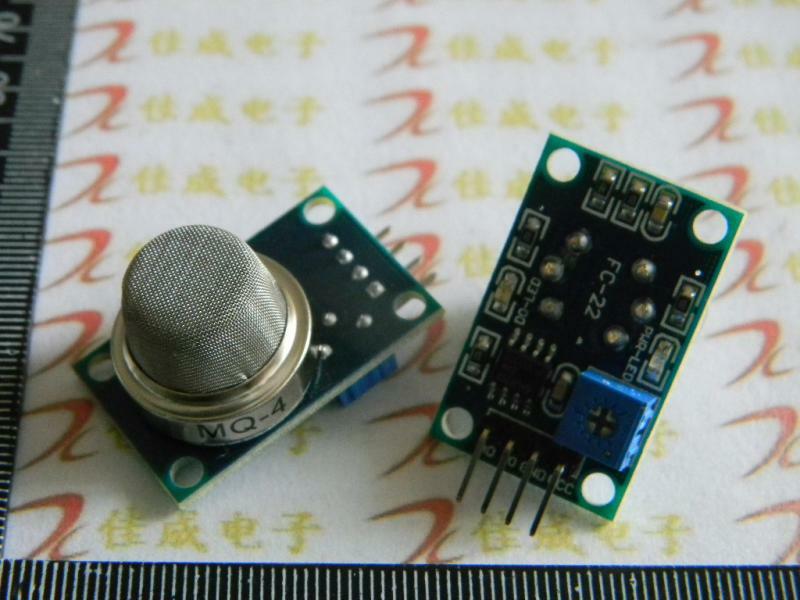
Modern technologies, due to the use of multifunctional microcircuits, make it possible not only to make gas leakage sensors miniature, but also add new features, from standard audible alarms to notification to the owner's cell phone or emergency service cities
Thus, starting from June 2019, gas sensors must be used when designing new homes.
Mandatory installation of leak sensors
As for the issue of mandatory installation of household gas leakage sensors, domestic legislation has not yet developed a law for residents of newly built apartment buildings.
The State Duma understands that the implementation of this project will require numerous costs:
- providing wages to employees installing gas analyzers;
- equipping with technical means that analyze the situation;
- equipment and personnel for prompt response;
- laying of communications;
- necessary equipment for extinguishing and repairing gas systems.
Funds for solving these issues will most likely be allocated from taxation funds, which in turn may lead to an increase in taxes on housing and communal services.
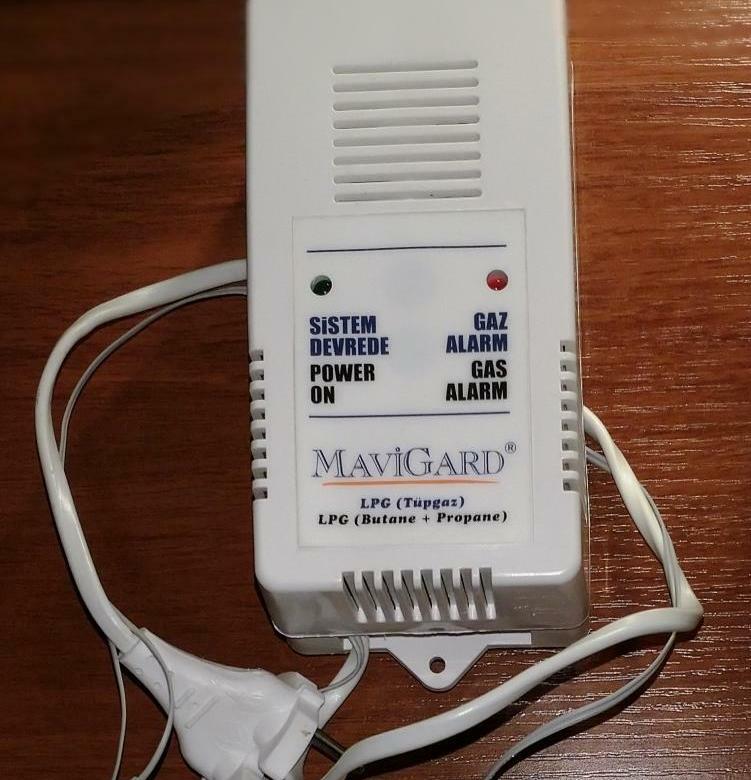
Depending on the functionality, size and design style, the cost of a gas leakage sensor ranges from 500 rubles to 5000 rubles
In the existing instructions for safe use of gas when solving household needs N 1614 / pr., which came into effect on December 5, 2017, the following obligations are imposed on all citizens of the Russian Federation who are the owners of apartments and residential buildings:
- maintenance of gas equipment in proper condition and cleanliness;
- preservation of the integrity of the installed seals;
- gas consumers passing instructions on use.
At the same time, there is not a single mention in the mandatory installation of a gas leakage sensor. Installing or not installing this equipment is considered the prerogative of the homeowner.
Expert advice on selection
One of the main issues that frighten gas consumers concerns the possibility of disconnecting the gas supply from the communication and imposing fines for the absence of a gas leak sensor. Lawyers help to answer the question about the need to install household gas sensors.
So, if there is an energy supply agreement and timely payment for gas supplies, there are no violations in the technical the use of gas equipment and compliance with the requirements for its maintenance, the gas supplier does not have the right to terminate delivery.
The presence of a gas leakage sensor in the kitchens of apartment buildings or in the kitchens of private houses is not necessary if only a gas stove is used.
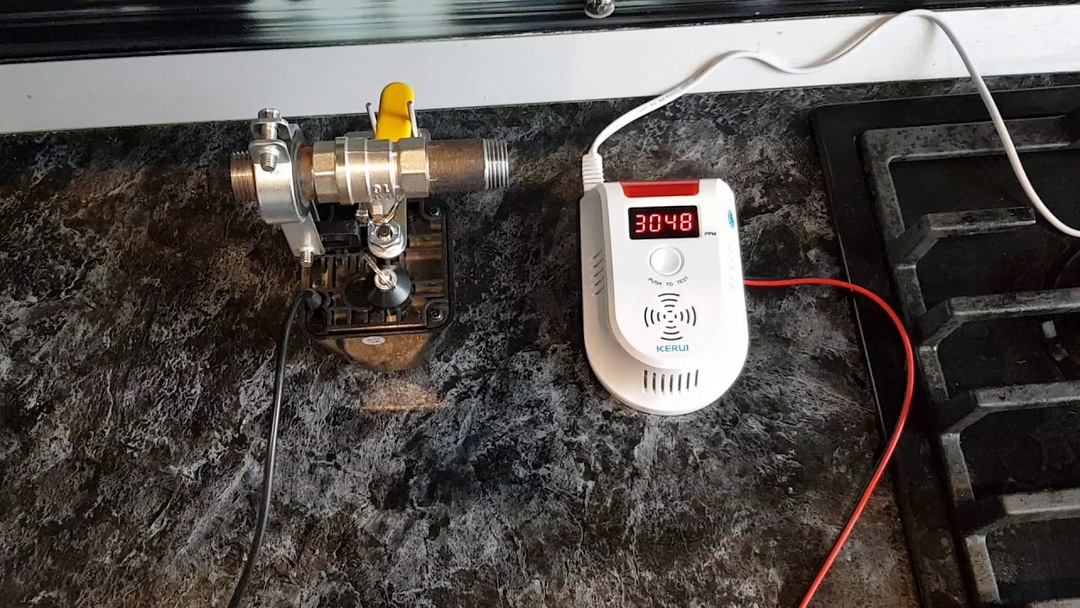
The procedure for installing a gas leakage sensor is currently not regulated by legislation. The owner of the apartment can independently purchase a standard sensor that will notify when the maximum permissible gas content in the air is exceeded. Installation of sensors with automatic shut-off of gas supply requires the participation of gas service specialists
In accordance with h. 2 tbsp. 16 Law No. 2300-1 "On the Protection of Consumer Rights" dated February 7, 1992, it is prohibited to impose services, in this case, the mandatory installation of gas leak sensors. Therefore, you should not unconditionally agree with the installation of this equipment under the threat of cutting off the gas supply.
Nevertheless, most experts in the field of gasification are categorical and believe that the installation of gas leakage sensors is a prerequisite for ensuring the safety of life. They refer to a number of European countries such as Germany, Norway and Denmark, where the installation of sensors is mandatory.
According to statistics, the number of accidents related to the consequences of gas leaks decreased by 85% after the introduction of the mandatory installation of these devices.
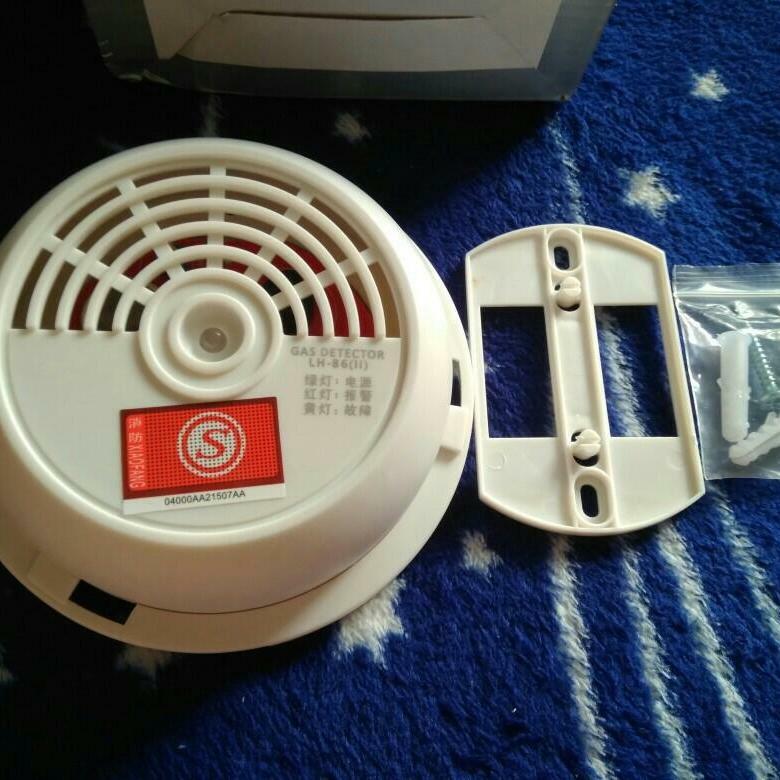
Gas leak detectors can be of various shapes. Depending on the interior and the style in which the kitchen is made, you can choose a round, square, rectangular shape. The variety of shapes does not in any way affect the functionality of the sensor
As for the type of sensor power supply, you can choose wireless option or with mains supply. The former are preferable, because they will be able to notify the owner of the danger even in the event of a power outage.
If we talk about the quality and price category of the chosen device, then there is no unambiguous assessment. Of course, choosing a more expensive copy you get not only a more reliable and sensitive sensor.
But this option will have a number of additional functions:
- determination of the critical concentration of gas in the air;
- prompt notification of emergency services about a gas leak;
- notification of the owner of the apartment via cellular communication.
Cheaper devices do not always do their job well. Often, the sensors react not only to gas leaks, but also to elevated temperatures or to an increased concentration of smoke and steam generated during cooking.
You don't have a leak sensor yet, but are you confused by the persistent smell of gas in the room? What to do and where to call we have described in detail in this material.
Conclusions and useful video on the topic
In order to figure out how to install a gas leakage sensor yourself, you can watch this video:
Do you still think whether it is necessary to install gas analyzers in a house or apartment at the present time and whether there will be a fine for their absence? The answer to this question is unequivocal - no. But, based on the above, it is worth noting that the installation of gas leakage sensors is mandatory in the design and construction of houses starting from July 2019. Also, the installation of gas analyzers at the moment is considered voluntary and for their absence it is prohibited to interrupt the supply of gas to an apartment or house. But, in the near future, changes in legislation are possible, which will oblige the installation of sensors in every kitchen.
And in conclusion, it must be said that the gas leakage sensor is, first of all, your safety. Its installation can prevent serious tragedies, since not all residents of apartment buildings always comply with rules for the operation of gas appliances.
What do you personally think about installing a gas leakage sensor? Do you consider it an important element in preventing fires and explosions in the event of a leak? Or are such sensors just another "money scam" of gullible users? Express your opinion, share your experience in operating sensors, take part in the discussion - the contact form is located below.


